Isle of Wight sea eagles: Police review into sea eagle's death concludes
- Published
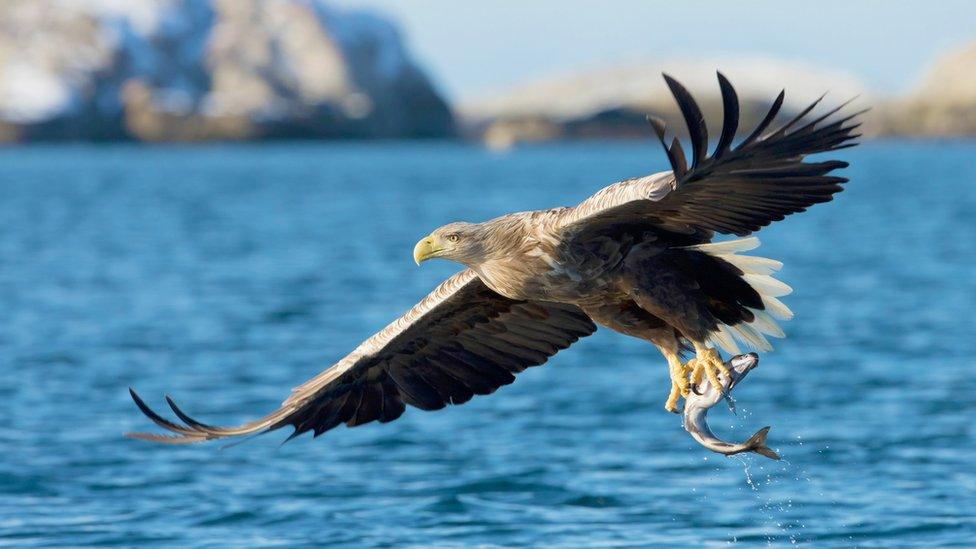
The birds, which have a wingspan of up to 8ft (2.4m), are released annually on the Isle of Wight
No one person can be proved criminally responsible for the death of a white-tailed eagle found with poison in its system, a police review has found.
Part of an ongoing conservation project on the Isle of Wight, it was one of three found dead this year.
Tests revealed high levels of the poison brodifacoum, a rat poison, in the bird in North Dorset in January.
It was initially investigated by Dorset Police alongside Natural England and the Health and Safety Executive (HSE).
The force stopped its investigation into the death in March after it was unable to confirm deliberate intent to kill the eagle.
Warning: This story contains an image that some readers may find upsetting
A review of the investigation was then launched by experienced detectives to ensure no investigative opportunities had been missed, said Assistant Chief Constable (ACC) Rachel Farrell.
Following consultation with Natural England and the HSE, the review concluded that there was "insufficient evidence to prove an offence of wilful poisoning by an individual - so no one person can be proven to have been criminally responsible for the bird's death", she said.
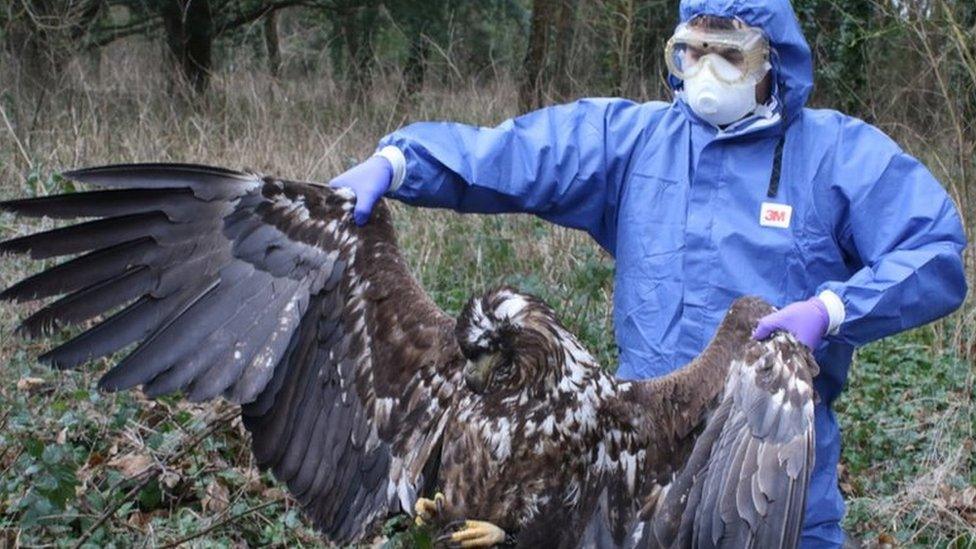
The young sea eagle was found dead in Dorset
In line with national guidance, the matter remains under investigation by HSE, ACC Farrell added.
An HSE spokesperson said: "Further to the enquires made to date, we are making inquiries to check that rodenticides are being stored, managed and used in accordance with the manufacturers' instructions and any relevant restrictions."
The decision to end the original Dorset Police investigation into the bird's death - one of three this year - was previously described as "baffling" and "premature" by the RSPB.
The birds are all fitted with GPS tracking devices, allowing their flight paths to be monitored.
The project, run by Forestry England and the Roy Dennis Wildlife Foundation, started in 2019 and sees at least six birds released annually on the Isle of Wight.

Follow BBC South on Facebook, external, Twitter, external, or Instagram, external. Send your story ideas to south.newsonline@bbc.co.uk, external.
Related topics
- Published20 June 2022

- Published30 March 2022

- Published29 March 2022

- Published10 February 2022

- Published2 September 2021
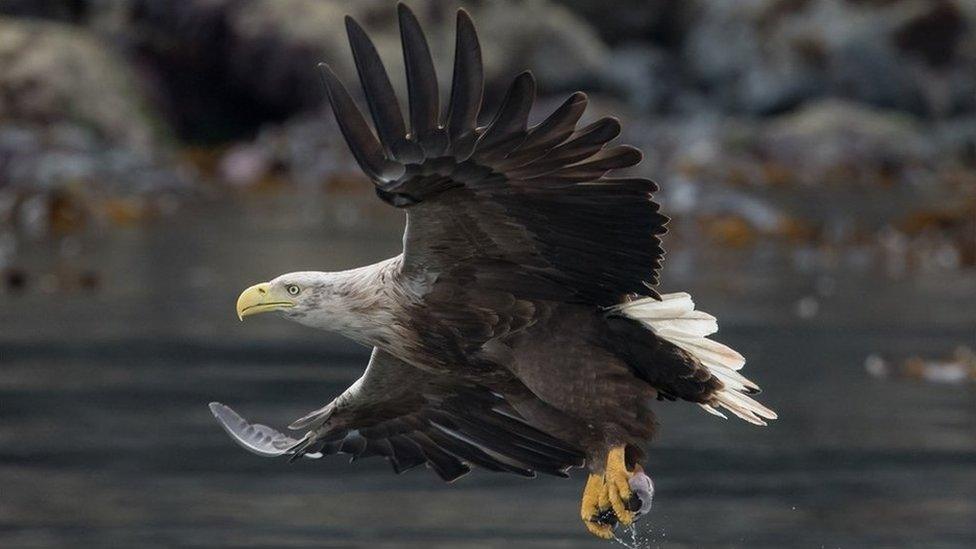
- Published10 May 2021
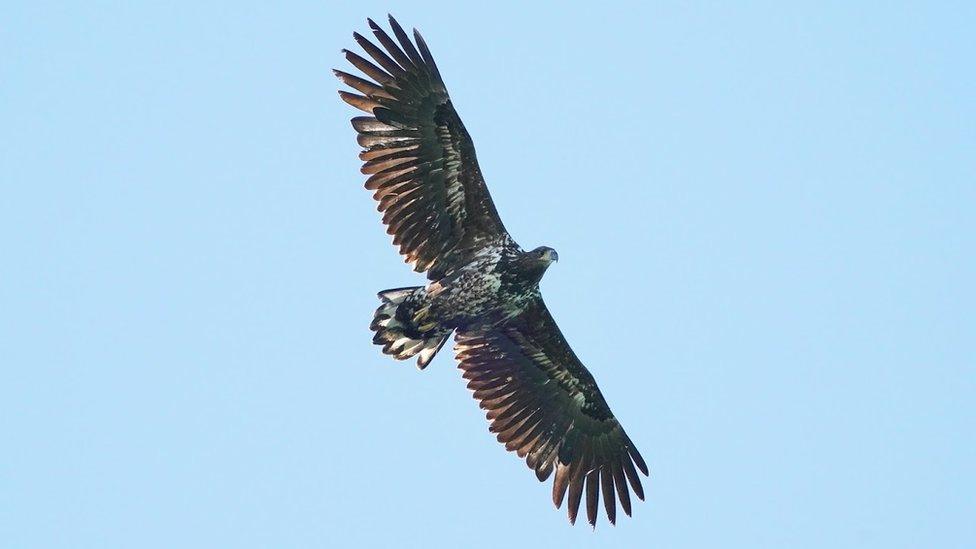
- Published7 April 2021

- Published9 February 2021

- Published4 May 2020

- Published18 January 2020
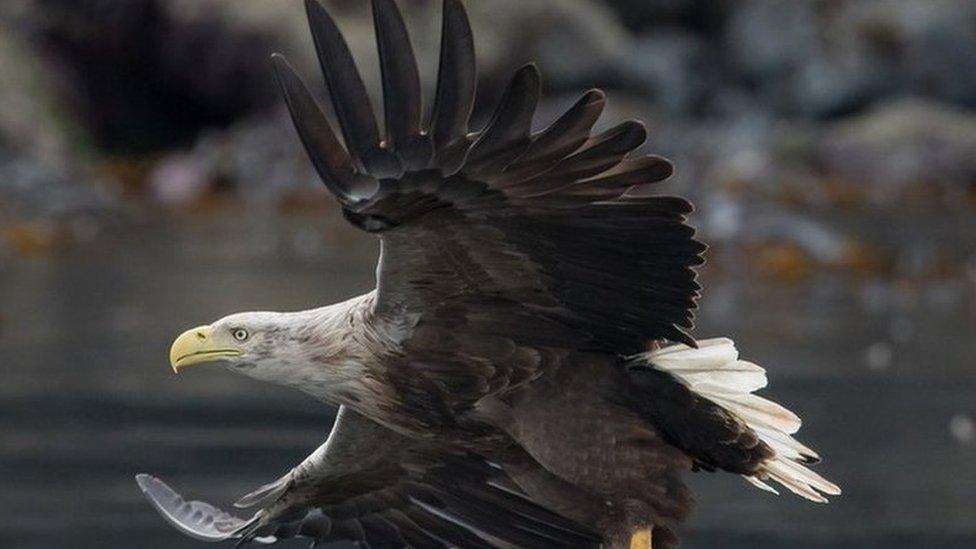
- Published24 October 2019
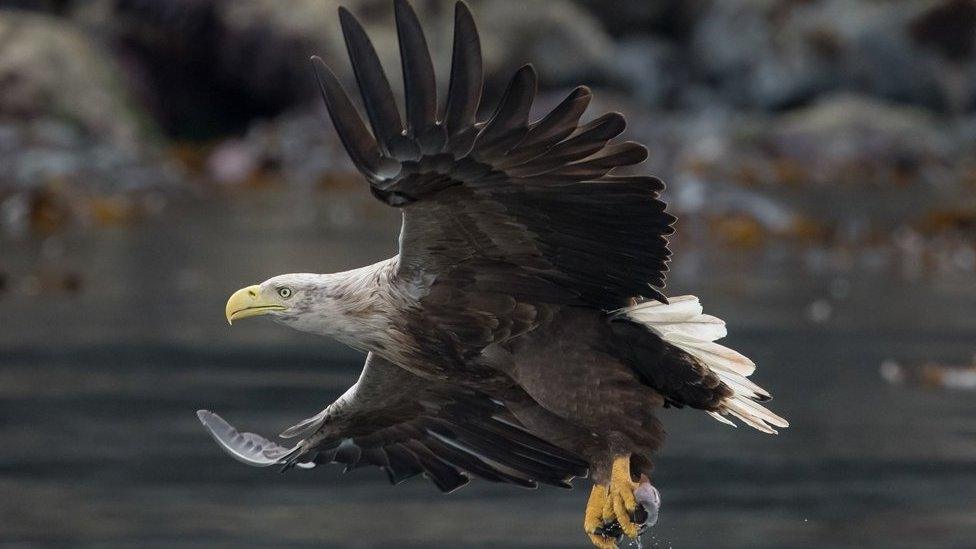
- Published22 August 2019

- Published3 April 2019
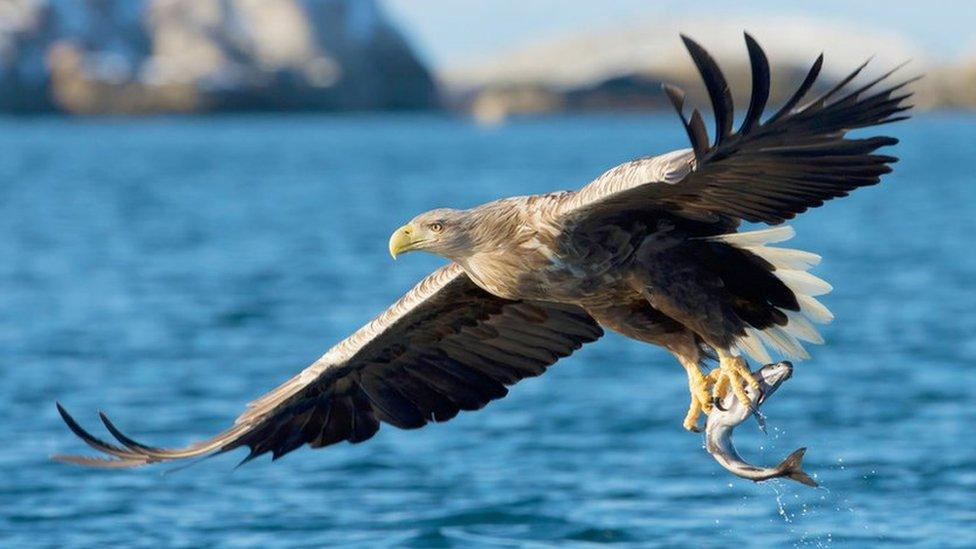
- Published2 April 2019
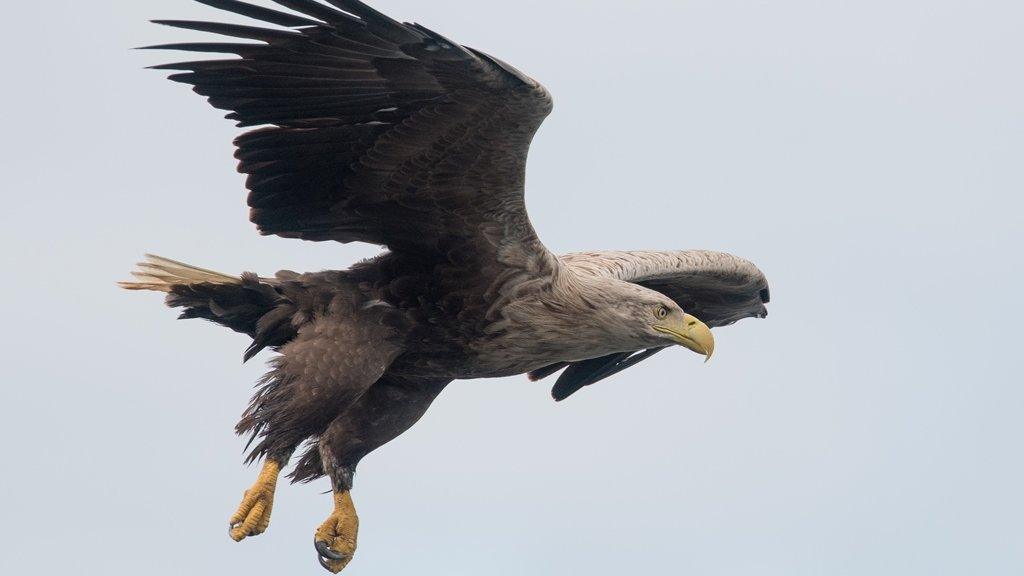
- Published20 November 2018
